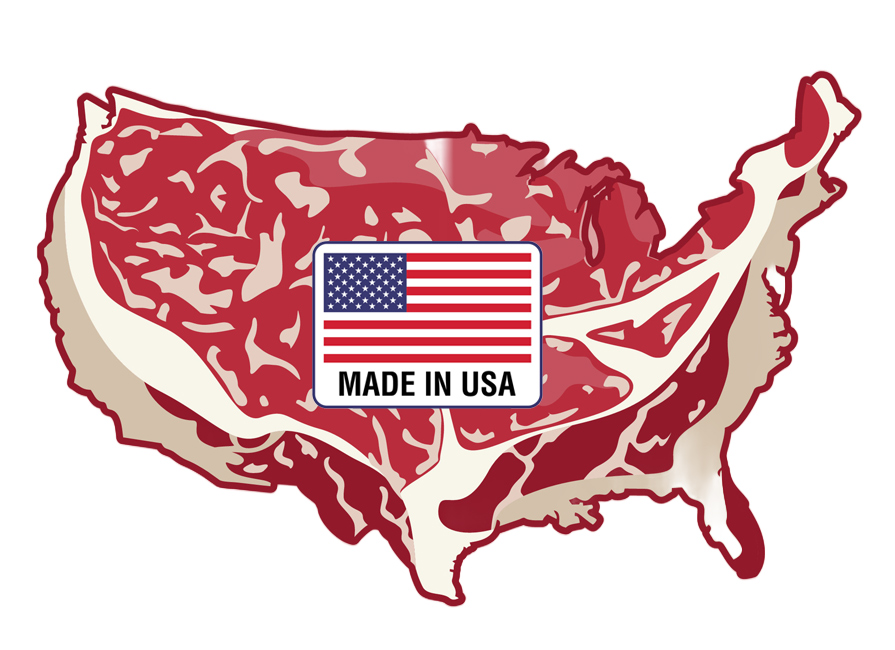In today's increasingly food-conscious world, consumers expect a label to mean what it says—including the…
Why Walmart Must Help to End Antibiotic Abuse In Farming
In this era of uninformed, “silver bullet” solutions to the plague that is industrial farming, it’s great to see that Dan Imhoff—the author of the seminal book CAFO: The Tragedy of Industrial Animal Factories—is making a stand against the reckless abuse of antibiotics in industrial livestock production. And he’s making real sense, too.
In a bold move, Imhoff has launched a new public petition which targets the largest—and yet possibly the most responsive—player when it comes to U.S. meat production and consumption: Walmart, our nation’s largest retailer.
Imhoff’s argument is simple. By continuing to turn a blind eye to the indiscriminate use of antibiotics among its meat suppliers in the name of producing so-called cheap meat, Walmart is effectively sanctioning the inevitable rise of antibiotic-resistant bacteria and the loss of some of the most important medicines known to humankind—thereby putting the future health and wellbeing of its own customers at direct risk. Imhoff thinks it’s about time Walmart’s millions of customers were aware of this fact. He’s calling on them to demand Walmart ensure its suppliers only use these vital medicines to treat sick and injured animals.
At Animal Welfare Approved, we are usually reticent to support incremental change when it comes to industrial farming. Nevertheless, we believe the situation concerning the rise of antibiotic-resistant bacteria is so dire—and the threat to human health so grave—that, if successful, this campaign could represent a major step forward in terms of protecting human health.
Currently, most Walmart meat suppliers fatten their animals in concentrated animal feeding operations (CAFOs), with tens of thousands of animals confined on barren dirt lots or indoors on slatted concrete or dirt floors. To maximize productivity—and profits—these so-called factory farms are designed to hold as many animals as possible in close confinement. Of course, the operators know only too well that disease outbreaks are inevitable in such cramped and stressful conditions, but profits must come first. Instead of taking steps to improve the conditions, they feed their animals low or “subtherapeutic” doses of antibiotics in their feed or water each and every day—whether they need them or not. Virtually all intensively farmed animals in the U.S. receive low levels of antibiotics throughout their lives as growth promoters to help maximize productivity or prevent disease. Today, a staggering 70–80 percent of all the antibiotics produced in the U.S. are used on food-producing animals. In fact, we use more antibiotics per pound of meat produced than any other nation in the world.
But while this may lower the price tag on industrial protein, scientists around the world now emphatically link this routine misuse of medicinally important antibiotics in the intensive farming industry to the rise of life-threatening antibiotic-resistant bacteria. By keeping so many animals in such close contact, and feeding regular low doses of antibiotics, these industrial-scale operations are actually providing the near-perfect conditions for the development of some very dangerous—and potentially untreatable—antibiotic-resistant strains of diseases like E. coli and salmonella. This means that when we get infected, there are fewer and fewer options for treatment. And we are fast running out of options altogether.
Don’t think for one second we’re talking about some distant or insignificant threat: Dangerous multiple antibiotic-resistant bacteria are now routinely found in the food we are eating on a day-to-day basis, and the risks are growing all the time. A report by the Environmental Working Group in April 2013 revealed high levels of potentially life-threatening antibiotic-resistant bacteria on raw supermarket meat. Similarly, in June 2013, the respected Consumer Reports found potential disease-causing organisms in 90 percent of ground turkey samples purchased from stores nationwide—and many of the bacteria they identified were resistant to more than three antibiotic drug classes. The fact is that we are on the verge of something very scary indeed: a world where antibiotics will no longer work, and where common bacterial diseases will once again kill unabated, returning us to the medical equivalent of the 18th century.
But don’t just take my word for it: the World Health Organization (WHO) has been warning for years that the emergence of antibiotic-resistant bacteria is one of the gravest threats known to human health. The UK Government’s Chief Medical Officer also recently said that the rise of antibiotic resistant bacteria could cause a global health catastrophe that ranks alongside the threat of climate change or terrorism. And according to a new report published this week by the U.S. Centers for Disease Control and Prevention (CDC), at least two million people become infected with bacteria that are resistant to antibiotics—and at least 23,000 people die—every year in our country as a direct result of these infections. The message cannot be any clearer.
Yet the U.S. intensive meat industry continues to wash its hands of any responsibility for the emergence of dangerous antibiotic-resistant bacteria. The likes of the National Cattlemen’s Beef Association, National Chicken Council, National Pork Producers Council, American Meat Institute and other industry bodies claim “there is no conclusive scientific evidence that shows the use of antibiotics on farms contributes significantly to an increase in antibiotic resistance in humans.”
So when it comes to protecting your future health, and the health of your family, who would you rather trust? The WHO, the UK Government’s Chief Medical Officer, and the U.S. CDC? Or a motley crew of industry-funded lobbying organizations whose sole remit it to protect the interests of the big industrial meat corporations?
Imhoff’s new campaign isn’t calling for Walmart’s suppliers to stop using antibiotics completely. That would be counter-productive, as I’ve explained before. The campaign is calling on Walmart to end the unnecessary and indiscriminate use and abuse of antibiotics by ensuring its suppliers only use these vital medicines to treat sick and injured animals. That way, we can ensure these lifesaving drugs will still work when you or your loved ones need them most. As Walmart currently purchases almost 50 percent of all meat produced in the U.S., Imhoff knows that if we can convince Walmart to only sell meat that’s been produced without routine low doses of antibiotics we can effectively put the brakes on the rampant rise of antibiotic-resistant bacteria.
And Walmart can achieve this. Walmart knows its supply chain intimately and, unlike lesser retailers out there, maintains strict control over its supply chain. As the nation’s largest retailer—and largest buyer of meat—Walmart could literally end the indiscriminate abuse of antibiotics on factory farms with one stroke of the pen. That is, so long as its customers—you and I—demand it.
Of course, the meat industry lobbying groups will claim that a ban on the routine subtherapeutic use of antibiotics would not only devastate the world-leading U.S. farming industry, but would also dramatically increase food costs. Yet such claims are nothing but hogwash. The sad truth is that when it comes to responsible antibiotic use in farming, the mighty U.S. livestock farming industry is actually years behind the European Union. To be precise, we’re at least five years behind the whole EU, 15 years behind Denmark, and 25 years behind Sweden in banning non-therapeutic uses of medically important antibiotics in farming. Europe’s livestock industry appears to have survived without any dramatic reduction in efficiency of meat production, nor has the cost of food in Europe skyrocketed as a resulted. Why not here?
When it comes to the threat of antibiotic-resistant bacteria to public health, don’t expect the Government to do anything to protect you, either. Instead of working on behalf of U.S. citizens as our industry watchdog, the U.S. FDA continues to play the role of Big Ag’s lapdog. Over the years, the FDA has routinely ignored the mounting scientific evidence on the links between antibiotic abuse in industrial farming and antibiotic-resistant bacteria. Far from putting public safety first, the FDA has repeatedly cowed down to powerful political and legal pressure from the multi-billion dollar intensive farming industry lobby and its paid-up politicians, allowing antibiotic use in farming to spiral out of control. Even the Government Accountability Office recently concluded that key government agencies—including the FDA—are simply not doing enough to combat the growing threat of antibiotic resistant bacteria to public health, and that “antibiotic use in food animals contributes to the emergence of resistant bacteria that may affect humans.” No, I’m afraid the fate and continuing efficacy of these vitally important medicines lies entirely in our hands—or, more accurately, our wallets.
So, in the face of ever-mounting consumer concern about the link between industrial livestock farming and the rise of life-threatening antibiotic resistant bacteria, the big question is this: Will Walmart choose to support what is, in effect, a desperate last stand by the handful of misguided corporations which currently control the livestock farming industry to protect their own interests and to maintain the status quo?
Or will the world’s leading food retailer recognize that it has a duty to not only ensure its food is safe, but that it also has a moral responsibility to do all it can to protect the future health and wellbeing of its millions of customers from what the World Health Organization has described as “one of the gravest threats known to human health”?
Please FOLLOW THIS LINK and sign the petition to call on Walmart to support healthier animal farming. Together, we can encourage Walmart to show real leadership in reforming the meat industry and ensure these vital medicines remain effective for as long as possible. For all of our sakes.




